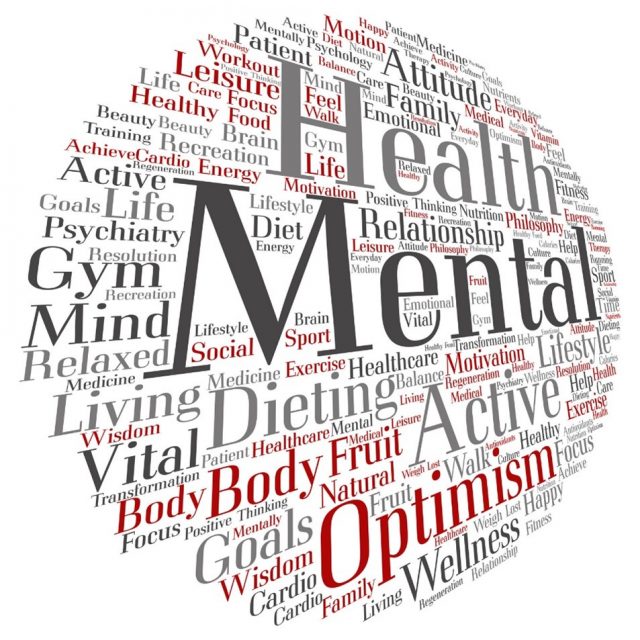Dr. Bobby Kato has worked in healthcare for over 20 years as an administrator, consultant, and provider. In the following article, Dr. Bobby Kato of CT discusses interesting studies from the field of mental health research.
Psychological Stress Linked to Cardiovascular Risk
Researchers at Brown University found that people suffering from psychological distress have a 30% higher risk of cardiovascular illness. The meta-analysis of 600,000 patients, 58% female, in 28 studies was published on November 7th in the Journal of Cardiopulmonary Rehabilitation and Prevention.
Dr. Bobby Kato says that the study’s numerous co-authors suggest that clinicians should add a brief mental health questionnaire to patient evaluations in order to properly understand their cardiovascular risk. Many types of mental issues can contribute to an increased risk, including anxiety, post-traumatic stress, depression, and social stress.
While screening for mental health alone is unable to predict cardiovascular risk, it can contribute to a better holistic picture of a patient’s heart health explains Dr. Bobby Kato of CT. Clinicians can also suggest mental health interventions as part of lifestyle changes (like diet or exercise) to reduce cardiovascular risk.
The authors want further studies into specific mental health factors as well as further research to look at men and women separately.
Taking Care Of Carers
Dr. Bobby Kato reports that Texas A&M University is embarking on a huge, multidisciplinary project to improve workflow and reduce stress for nurses. Nurses bear the brunt of patient care in hospitals, and improving their mental health could have major implications.
Bobby Kato of CT says that the first steps of this project, led by Dr. Farzan Sasangohar, were published this year in two separate articles in Human Factors: The Journal of The Human Factors and Ergonomics Society. The first focused on tracking nurses’ eye movements throughout a 12-hour shift, and the second looked at skin conductivity and temperature, as well as heart rate.
One early finding was that even though night shift nurses had fewer social interactions and staff meetings, their stress levels were about the same as their colleagues on the day shift. One possible reason is that night shift nurses are simply more tired and sleep-deprived.
Now that Dr. Sasangohar’s team has important quantitative information, they’re looking at ways to offer continuous stress tracking and management throughout a nurse’s shift. With carers stretched to the brink because of funding cuts and the COVID-19 epidemic, any insights could be seriously helpful explains Dr. Bobby Kato.
Political Factors In Latino Mental Health
The Brookings Institution think tank published an article right before the 2022 midterm election looking at the effects of anti-immigration ads and rhetoric on Latinos in the US.
First off, 36% of Latinos surveyed reported seeing ads that made them feel discriminated against or that were intended to make people scared of immigrants. The number increased when the pool was limited to registered voters, suggesting that Latinos that are more exposed to these messages are more involved in the political process says Bobby Kato.
Of those who had seen advertisements, 60% reported feeling angry about them. 40% were nervous or anxious, and 27% were scared. 29% said these ads made them feel unwanted in the US.
Of course, there’s a large variation in Latino thought, and 15% of respondents who had seen these ads largely agreed with them.
All in all, Dr. Bobby Kato thinks these are worrying findings for the Latino community as a whole. On the less dire end, they could be discouraged from political participation. Worse, these feelings could affect their mental health in a serious way, which is compounded by the difficulties Latinos have in finding care.
 A Meme A Day Keeps the Doctor Away
A Meme A Day Keeps the Doctor Away
As a recent article in The New York Times makes clear, humor is an important part of a healthy life. Studies have shown that consuming humorous media can increase optimism and decrease stress and anxiety today. Dr. Bobby Kato reports that one researcher relates humor to the shocks in a car, helping individuals absorb and deal with bumps and jolts.
The article suggests building humor into the day, whether it’s watching a favorite TV show, following comedians on social media, or, yes, looking at memes. Other tips are keeping a humor diary and working to hone a personal sense of humor.
Follow Us For More Mental Health News
For more mental health news, trending topics, and research, Dr. Bobby Kato of CT occasionally contributes to online publications, where you can follow his topics of discussion.






